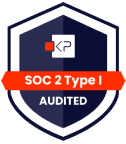It is considered a rite of passage into adulthood for young Americans when they graduate high school. Leaving that nest of protection and going out in the world to create your own reality, fulfill your own dreams and, just as importantly, use the financial education and literacy you learned to earn your own way in life.
Unfortunately, for so many of us, lessons in financial literacy and education have not been up to the task, particularly in today’s K-12 educational system. The ugly truth is The Financial Literacy Crisis in America 2023 Report by Ramsey Education found that 88 percent of adults in the U.S. did not feel equipped to handle money following high school. According to an article by Yahoo!, three in four Americans claimed that following high school, they “often” or “sometimes” felt stress because of money.
“Money is something we all should know how to handle going into the real world,” said Kristina Ellis, college finance expert and Ramsey Solutions Personality. “Learning solid money principles early – such as how to budget, save, and spend wisely – is crucial for success in your adult life.
“This last year has been so hard for people financially, and I feel for them,” she continued. “My hope is more states will require this education for graduation so in times of inflation or when their budgets feel tighter, more Americans are ready to handle their money and succeed.”
Notable findings from the Ramsey Education report include the following:
- Eight in ten Americans said they would have had a better start with money if they’d learned about personal finance in high school
- Only 17 percent of U.S. adults said they took a class in personal finance in high school
- Only 17 states require a personal finance course to graduate high school

How 4Front Credit Union strengthened financial literacy and education in their community
Fortunately, credit unions with strong ties to their local communities are joining the mission to educate members and community individuals on the importance of sound financial management and habits, and providing solutions to address this initially intimidating life task.
Cooperatives, from local to national, are contributing heavily to this new financial literacy movement, and it’s not difficult to understand the growing trend, particularly with high school youth or younger students.
Eight years ago, valued QCash client 4Front Credit Union made a choice that would alter their cooperative’s future forever.
In their mission to champion digital and online services in 2015, their endeavor to increase financial literacy and education, accessibility, awareness, and inclusion for their members also heralded an era of newfound revenue potential and brand credibility for the organization.
4Front’s efforts in financial literacy and education weren’t nearly finished with their digital offerings. In 2022, 4Front launched a nonprofit, the 4Front Foundation, to give back to the community that gave them so much. The foundation’s aims include providing services to their community that supports financial education through scholarships and financial literacy efforts and initiatives. The foundation also takes consistent action to create innovative programs for its members while strengthening its outreach and influence on local neighborhoods.
“4Front has contributed more than $700,000 in community investment since our inception in 2015 and we’re extremely proud of that,” said 4Front Foundation Executive Director Rachel Hunter. “We’re always looking at how we can do more to help our communities and establishing the foundation will allow us to do just that.”
QCash is proud to be associated with such community-first cooperatives as 4Front Credit Union who truly take action on and live up to the mission of “people helping people” by staying true to the Credit Union Difference. By focusing on helping newer generations embrace financial health principles earlier in life by exposing them to financial literacy and education, we can reverse the current trend of financial health obstacles for adults within a generation.






